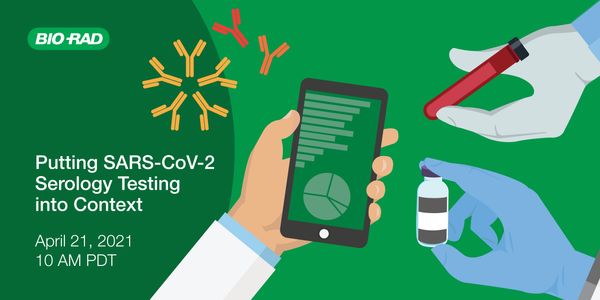Medical analysis
Medical analyses can be performed to help diagnose or treat a disease. Patient samples or specimens, such as blood, urine, or a tissue biopsy, can undergo medical analysis by a variety of techniques.
-
JUN 09, 2021 | 8:00 AMDATE: June 9, 2021 TIME: 8:00am PDT Analyzing antigen-specific T cells is essential to understand fundamental immunological processes in the contexts of immuno-oncology, infectious dise...JUN 09, 2021 | 7:00 AMDate: June 9, 2021 Time: 09 June 2021, 7am PDT, 10am EDT, 4pm CEST cells with dramatic implications on the validity of past cell culture related research. The fact that at least 509 cell lin...Learning Objectives: 1. Learn about why Luminex’s xMAP bead-based technology is the gold-standard in multiplexing, including how xMAP emerged as the leading multiplexing platform for l...Speaker: Wilco de Jager, PhD , Sigrun Badrnya, PhD
Progress developing immune-based treatments to treat the highly lethal pancreatic ductal adenocarcinoma (PDA) has lagged behind other cancer types. This may be due, in part, to a fibroinflam...
MAY 27, 2021 | 9:00 AM
Date: May 27, 2021 Time: 9:00am PDT Since the current SARS-CoV-2 outbreak, there has been an urgent need to define the immune response and understand the relevant immunological mechanisms un...
For the past years, my laboratory has been working on microfluidic devices to enable the analysis of single cells. Our technology of choice has been droplet microfluidics that encapsulates s...
MAY 11, 2021 | 10:00 AM
Date: May 11, 2021 Time: 10:00zm PDT Your samples are some of the most valuable assets in the laboratory. After spending countless hours on extraction and preparation, your conclusions could...
Speaker:
Paulina Kocjan
, Kate Meola
, Zareh Zurabyan
...
Speaker:
Heather Bowerman
, Michelle McMurry-Heath, MD, PhD
, Charlotte D. Owens, MD, FACOG
, Yesmean H. Wahdan, MD
, Kaveeta P. Vasisht, MD, PharmD
, Julie M. Zissimopoulos, PhD
Presented at: 5th Annual Vivian Pinn Symposium
...
Speaker:
Arthur P. Arnold, PhD
, Ana Mari Cauce, PhD
, Leslie Meltzer Henry, JD, PhD, MSc
, Londa Schiebinger, PhD
, Kim Templeton MD, FAAOS, FAOA
Presented at: 5th Annual Vivian Pinn Symposium
MAY 05, 2021 | 8:00 AM
Date: May 5, 2021 Time: 8:00am PDT, 11:00am EDT Emergence of genetic mutations within the SARS-CoV-2 genome that may enhance transmissibility, increase symptom severity or improve the virus...
Every day in America nearly seven thousand people die. That’s about two and a half million deaths per year. When a death is violent, unexpected, medically unattended, or suspicious &nd...
Cancer is among the leading causes of death worldwide. In 2018, there were 18.1 million new cases and 9.5 million cancer-related deaths worldwide. With the advancement of next generation seq...
Speaker:
Xia Li, Ph.D., DABMGG, CG(ASCP), FACMG
Presented at: OncomineWorld 2022: A Virtual NGS Education Meeting
Next-generation sequencing is transforming scientific research and testing. Thanks to large-scale cancer projects (e.g. The Cancer Genome Atlas - TCGA), the accumulated knowledge is now used...
























